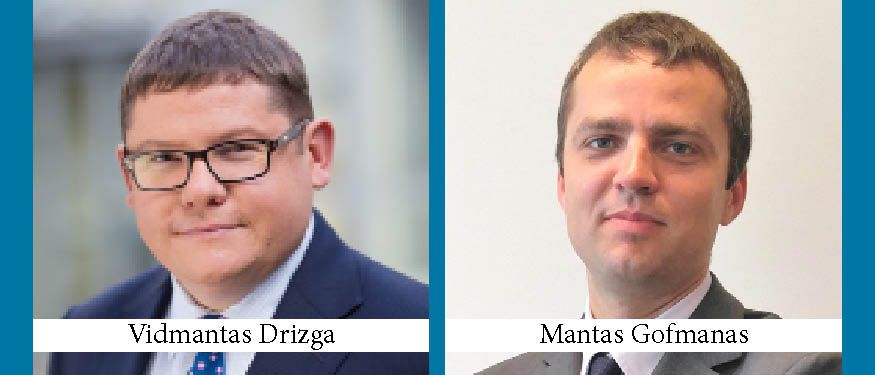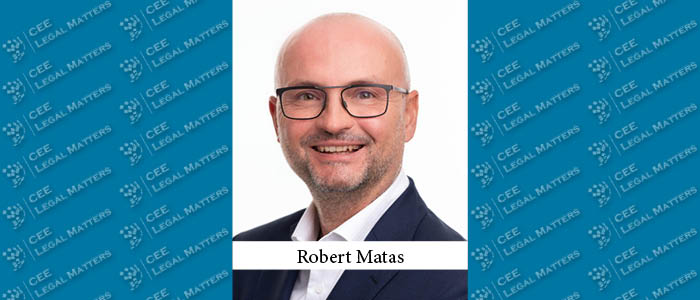Following the global financial crisis of 2008, the Government of Lithuania started considering measures that would create effective alternatives to banking financing. This was crucial to small and medium businesses, to which banking financing quite often was not available. One of these measures was the promotion of special collective investment undertakings (private capital, alternative, real estate, etc.), designated for professional and well-informed investors (the “Specialized CIUs”).
After Commission Directive 85/611/EEC of December 20, 1985 on the coordination of laws, regulations, and administrative provisions relating to undertakings for collective investment in transferable securities (as amended; the “UCITS Directive”) and other related EU legislation was transposed to the Lithuanian legal system, only a few Specialized CIUs were found in Lithuania. This was due to the fact that the absolute majority of investors in Lithuania were non-professional investors, to which the highest level of protection had to be ensured, which in turn resulted in the highest level of obligations to intermediaries, providing investment services to such investors. Thus, when structuring the Specialized CIUs the market professionals and managers of collective investment undertakings usually searched for more advantageous jurisdictions, such as Luxembourg, the Netherlands, or Sweden.
This situation started to change in 2013, when a new Law on Collective Investment Undertakings Designated for Informed Investors and other related legislation was adopted in Lithuania. As a result, a possibility was created to structure not only heavily regulated UCITS which provided a high level of protection of non-professional investors, but also Specialized CIUs, designated solely for informed investors, which do not require the same level of security. When creating a legal framework for these Specialized CIUs, the progressive regulations of other EU countries, in particular of Luxembourg (with its SIF – fonds d‘investissement specialise and SICAR – societe d‘investissement en capital a risque), were considered.
The main features of Specialized CIUs are as follows:
All their investors must be informed investors. Applicable laws provide a number of conditions that “informed investors” must meet. However, generally these investors include professional investors (including high net worth companies) and natural and legal persons who are not professional investors but who have confirmed in writing their status as informed investors and who undertake to invest at least EUR 125,000 into a Specialized CIU.
A wide range of legal forms of Specialized CIUs is offered. Specialized CIUs may act in the form of an investment fund (which is not a legal person and is managed by a licensed management company) or an investment company (which is a legal person and not necessarily managed by a licensed management company). The type of an investment company (fund) may be either closed-ended or open-ended.
An investment company may be established as a public limited liability company (minimum authorized capital: EUR 40,000) or a private limited liability company (minimum authorized capital: EUR 2,500). In addition, it may also be structured as a general partnership (with no authorized capital; however, all partners of the partnership (i.e., investors) must have unlimited liability for obligations of the partnership) or a limited partnership (with no authorized capital; at least one partner of the partnership must have unlimited liability (general partner) and at least one partner must be liable for obligations of the partnership solely in the amount contributed by him or her to the partnership (limited partner)).
No strict requirements with respect to investment objects and portfolio diversification are prescribed. A general principle is that investment objects of Specialized CIUs are not limited – i.e., they may invest into all kinds of financial instruments provided that the investment portfolio is diversified to ensure a proper breakdown of investment risk. As a general rule, this means that a Specialized CIU must invest no more than 30% of its assets into a single financial instrument (object). However, this portfolio diversification requirement does not apply to Specialized CIUs, assets of which are invested solely based on the risk capital investment strategy. Such Specialized CIUs may invest in a single financial instrument.
Managers and investors have discretion to agree on conditions of investment activities and participation in a Specialized CIU. The applicable legislation provides for a high degree of discretion for managers of Specialized CIUs and their investments to agree on provisions related to establishment of net asset value, issue, acquisition, and redemption of shares (investment units), etc., discussing them in the incorporation documents of Specialized CIUs.
Relatively short terms for licensing a Specialized CIU. A license permitting the activities for a Specialized CIU and its management company is issued by the Bank of Lithuania within three months from the provision of all the necessary documents.
Taxation issues. Similarly, as with UCITS, investment income (except for dividends and other distributable profit) gained by Specialized CIUs is not subject to profit tax; only the distributed profit is taxed. General exemptions regarding distribution of dividends and capital gains are applicable in this case. Furthermore, asset management services are not subject to VAT if provided to Specialized CIUs.
To sum up, when considering an investment vehicle for informed investors which would manage its portfolio flexibly, would have no strict portfolio diversification requirements, and would benefit from tax exemptions, one should always consider Lithuania as an option.





























